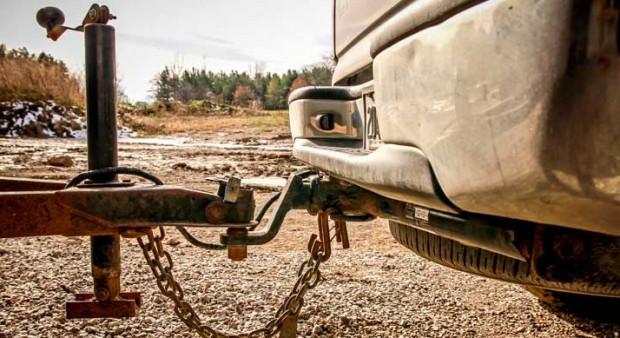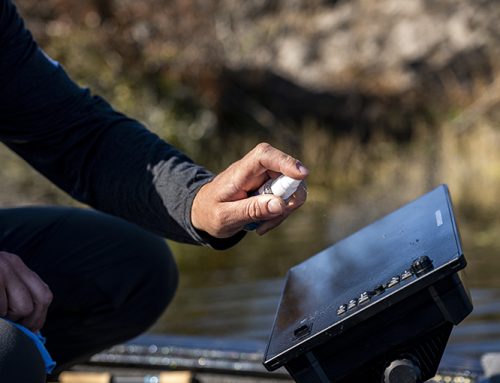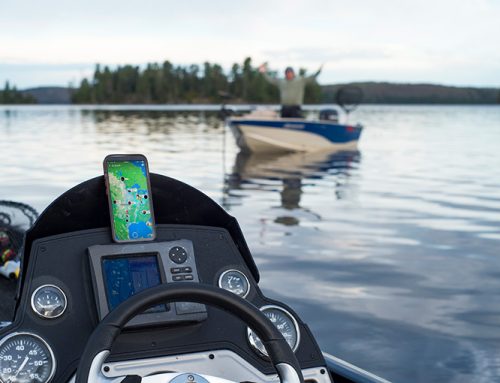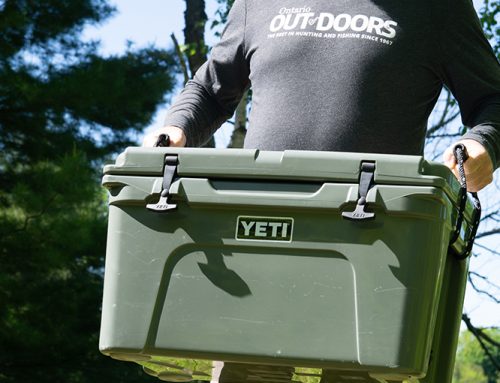
Then I was a kid, I biked miles to local farm ponds, my rod tied to the crossbar, tackle box on my back. Then I had one of those sparks of genius only granted to 11-year-olds and I introduced my dad to fishing. He had a car.
Thus was born my love affair with vehicles for their primary function: moving people and stuff from point A to point B. Every vehicle I’ve owned since the ’60s has hauled fishing rods, dogs, canoe packs, and paddles — and most of them were 4-cylinders. But, the rush that only comes from good wheels has always been with me, too. I suppose the pinnacle of these contradictory needs would be the 5-litre Mustang GTs I piloted through the ’80s. Both were hatchbacks, both got hitches.
Ride of choice
For many angling and hunting enthusiasts, a pickup or SUV will be the preferred ride, and towing may be second nature. But with ever-rising fuel prices, drivers have to strike a balance between what will move their outdoor toys around and what the family budget can bear.
Is it possible to achieve both? Sure, just pay attention to what you really need. A three-quarter ton with a turbo diesel will pull just about anything, but not everyone needs that much muscle. Most commonly, outdoors people are using their vehicles to tow a boat, box trailer, or travel trailer.
Many people are put off towing by fear of the unknown, and some car manufacturers don’t help, but if you can put a hitch on a Smart car — and you can — then your family’s 4-banger can do the job. A bigger vehicle is even better, but virtually any 4-cylinder family car will happily haul 1,000 pounds or more, and you won’t invalidate the warranty by installing a hitch.
In Canada and the U.S., our outdoor toys tend to be larger than elsewhere on the planet, so some vehicle makers discourage towing by putting a warning to that effect in the owner’s manual. They don’t want you saddling up a 26-foot Airstream behind a small car, and quite rightly so. It’s all a question of balance and being sensible.
Manageable weight
The manufacturer of the popular 4-cylinder mini-van my wife drives discourages Canadian owners from towing. However, the same car with a smaller engine is rated to tow up to 2,000 pounds in Europe where hauling with small cars is a way of life.
Vendor Ben Sansall of Near North Recreation in Parry Sound points out that all in, a 14-foot wide-body boat, 9.9-hp 4-stroke motor, and trailer weighs about 857 pounds, well under the average 4-cylinder’s capacity. And, it can cover 90% of the fishing done in Ontario.
For over 2 decades, my own boat has been a beamy 16-foot side console with a wooden floor, 40-hp motor, 2 batteries, pedestal seat, and bow-mount electric, and none of my 4-cylinder vehicles has had a problem hauling it.
There are lots of pop-up camper trailers that fall well within lightweight parameters. If a hardtop caravan is needed, ProLite makes some terrific units, that comfortably hold 2 to 4 people, with a 3-way fridge, furnace, cooking facilities, and weigh less than 900 pounds.
Invest in safety
Whatever you tow, and whatever you tow it with, there are some basics that should not be ignored. While towing is certainly not the disaster-in-waiting some fear it to be, there are serious risks involved with towing with badly installed equipment of any kind. The OPP conducts major summer highway blitzes for this reason.
A trailer has to be maintained, just like the car or truck that’s towing it. Be sure that tires are properly inflated, bearings are adequately greased, couplers are secured, safety chains are in place, loads are well tied down, and the lights work.
Hitches are designated Class I (up to 2,000 lbs), Class II (3,500 lbs) and Class III (5,000 lbs). There are larger ones as well, but 1 to 3 covers most regular applications. Have a professional install your hitch using wiring designed for your vehicle. It’s a small price to pay for peace of mind, and it’s worth every penny.
“Sourcing a hitch for almost any vehicle is possible with a few days notice,” said Lorne Weyers, owner of Hitch and Trailer Supply in Scarborough. “A typical Class 1 or 2 installation, with wiring, costs about $250 to $350 on a domestic vehicle and $350 to $500 on some imports. “I usually urge a customer to go with a higher-rated hitch, if one is available for that vehicle,” added Weyers. “Not to tow over the limit but to facilitate other aftermarket accessories, such as a bike rack, which can actually put more stress on a trailer hitch than towing a trailer because of leverage.”
Sound advice. I’d also avoid a trailer with 8-inch wheels and go for 12-inchers or larger. If your rig has the smaller wheels, install a grease fitting and dust cap on each hub, which you can do easily and cheaply. A trailer with high, solid sides is much more versatile than the current crop of low, open-sided landscaper-style trailers. Make up a little kit containing spare bulbs, electrical tape, pliers, screwdriver, and some wiring connectors. And, if you have never towed before, practise in a quiet location with plenty of space before you head out on your first towing adventure.
Originally published in the 2014 January-February issue of Ontario OUT OF DOORS magazine. Subscribe.






Leave A Comment